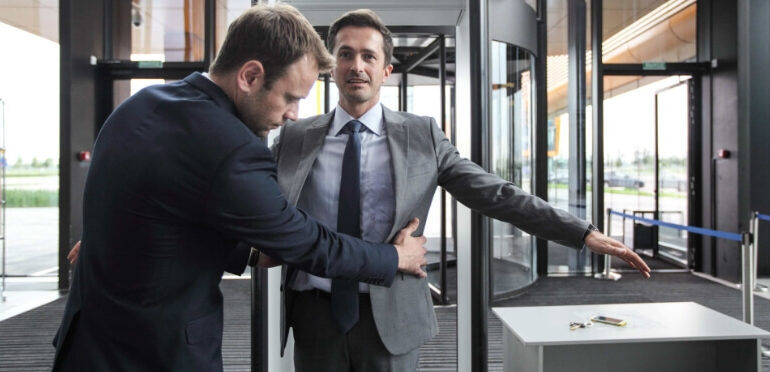Whether you’re organising an exhibition, gala dinner, awards ceremony or an annual festival attracting thousands of people, your top priority should always be the health, safety and comfort of your guests.
From arranging tight security protocols to choosing the right team and adhering to the latest government and industry advice and regulations, planning the details early on is key to success. Below we’ve added a series of tips to help you organise and execute an event that’s safe, secure, enjoyable and memorable — for all of the right reasons!
Assess your security risks
Event organisers and managers should always have a strategy in place to assess the security risks. A comprehensive assessment will define these threats, from terrorist activity or industrial accidents to cyber hacks or data breaches. It’ll then plan for how they’re mitigated and provide your team with a framework to build its risk mitigation strategies.
Prepare for evacuation situations
It’s said that most large-scale venues are required to be able to evacuate all patrons within 90 seconds during an emergency. This is what we call a ‘principal exit’. In the case of a fire, hazard or similar event – egress paths must comply with regulations. This includes having signage directing visitors where exits are, staff positioned along escape routes and adequate lighting. If you’re organising an event, it’s vital to identify all potential evacuation routes and ensure they’re clear and well-lit. Staff should be aware of the emergency evacuation plan and practice it regularly. In addition, consider arranging for a public address system to be used in the event of an emergency to inform patrons where to go.
Keep your security measures visible
When it comes to security, it’s crucial to be proactive rather than reactive. One way to do this is to make sure your security measures are visible and prominent. This will help deter criminals and make it easier for security personnel to do their job. Security measures can include CCTV cameras, metal detectors, security guards and signage indicating that bag checks are in operation. Ensure these measures are clearly visible not just during the event but also in the lead-up and aftermath.
Create checkpoints
Another way to ensure the safety of your guests is to create checkpoints throughout the event. This will help prevent people from entering or leaving the event without being screened. Checkpoints can be manned by security personnel or volunteers and should include bag checks and ID checks. If you’re using metal detectors, be sure to have a separate line for those who need to pass through them.
Provide staff training
Staff training is essential for your team to be prepared for any eventuality. Ensure all staff are aware of the security measures in place and know their individual and collective responsibilities during an emergency. Your team should also know how to handle difficult situations, such as dealing with unruly guests or medical emergencies. Provide training on how to recognise the signs of over intoxication. Training should be extensive and address both expected and unexpected scenarios. Providing staff with additional tools such as earpieces or walkie talkies is an excellent way to keep communication lines open during an event.
Hire the right outside help
It’s critical to bring in outside help when planning a large event. Event security consultants can provide assessments and professionals to handle specific security, medical assistance, and transportation tasks. You may also need to bring in various SIA approved security guards to ensure you have experience, proficiency and professionalism on your side. When hiring your team, it’s crucial to find operatives with many years of hands-on experience providing security services for events of all sizes.
Look into liability insurance
You may be held responsible for injuries or damages incurred at your event. Liability insurance is available through many different companies. The cost is minimal, considering the peace of mind this type of coverage provides. It covers both third-party claims against your business and legal defence costs if charged with a crime.
Crisis response planning
No one ever expects a crisis, but you should have a plan in place. Your crisis response plan should address how your team will deal with common issues such as weather or medical emergencies and those more significant issues like fires or riots, whereby planning for the most unlikely scenario is essential.
Mitigate Cyber Threats
Of course, data security will be critical throughout the event too. Non-compliance with the General Data Protection Regulation (GDPR) might result in fines up to €20 million (about £18 million) or 4% of annual global turnover – whichever is greater. Therefore, any event organiser must be aware of this. Aside from the issue of obtaining this data without people’s consent (which is a different story entirely), this information must be kept safe and secure. Otherwise, a data breach may result in significant financial damage. Make sure your technology systems are thoroughly evaluated by an IT team and that adequate security precautions are implemented.
If you require help with events security or wish to boost your strategy with experienced SIA events guards, Intraguard can help. We provide tailored security solutions for events of all scales and complexities. You can learn more about us and how we can help you by sending us a message or calling 0333 888 0247.
